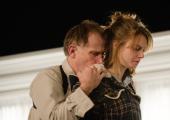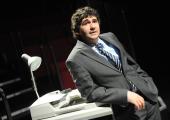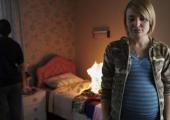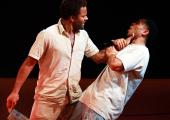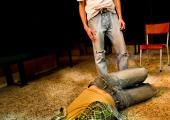The Train Driver, Hampstead Theatre
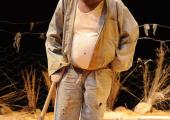
Athol Fugard’s new play is a two-hander which broods about death
Few playwrights have been so successful at moulding our view of a nation as Athol Fugard. It’s impossible to think of South Africa, especially during the apartheid years, without thinking of his Sizwe Bansi is Dead, The Island or Statements after an Arrest under the Immorality Act. Since the end of the old regime in 1994, the moral fuel that powered his plays may have evaporated, but this new work, one of nine premiered by the 78-year-old author in the past 15 years, shows that his feeling for stagecraft and his concern for human dignity remain undiminished.

